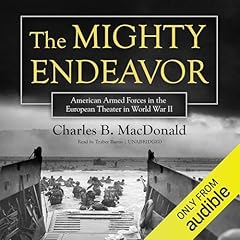
Malayan Campaign
A History from Beginning to End (World War 2 Battles)
No se pudo agregar al carrito
Add to Cart failed.
Error al Agregar a Lista de Deseos.
Error al eliminar de la lista de deseos.
Error al añadir a tu biblioteca
Error al seguir el podcast
Error al dejar de seguir el podcast
Prueba gratis de 30 días de Audible Standard
Compra ahora por $9.76
-
Narrado por:
-
Matthew J. Chandler-Smith
-
De:
-
Hourly History
Prior to December 1941, Great Britain commanded an empire that stretched across the globe. However, after the Malayan Campaign, which began on December 8, 1941 and ended on January 31, 1942, the world order was up for grabs as the Empire of Japan contested British rule and American military might in the Pacific in the early years of World War II.
Influenced by racial stereotypes, the West initially failed to perceive the full expanse of Japan’s growing power in Asia. That ignorance enabled the Japanese to begin the war in the Pacific against the Western Allied Powers, invading the British colony of Malaya after Japan’s surprise attack on Pearl Harbor.
From the beginning, the Japanese commanded both air and sea, while the British, Malayan, Indian, and Australian forces struggled to defend Malaya. By the end of January 1941, the Allies were retreating to Singapore, and Malaya was under Japanese control, after nearly 50,000 troops belonging to the Commonwealth had been killed or captured.
©2021 Hourly History (P)2021 Hourly HistoryLos oyentes también disfrutaron:






















